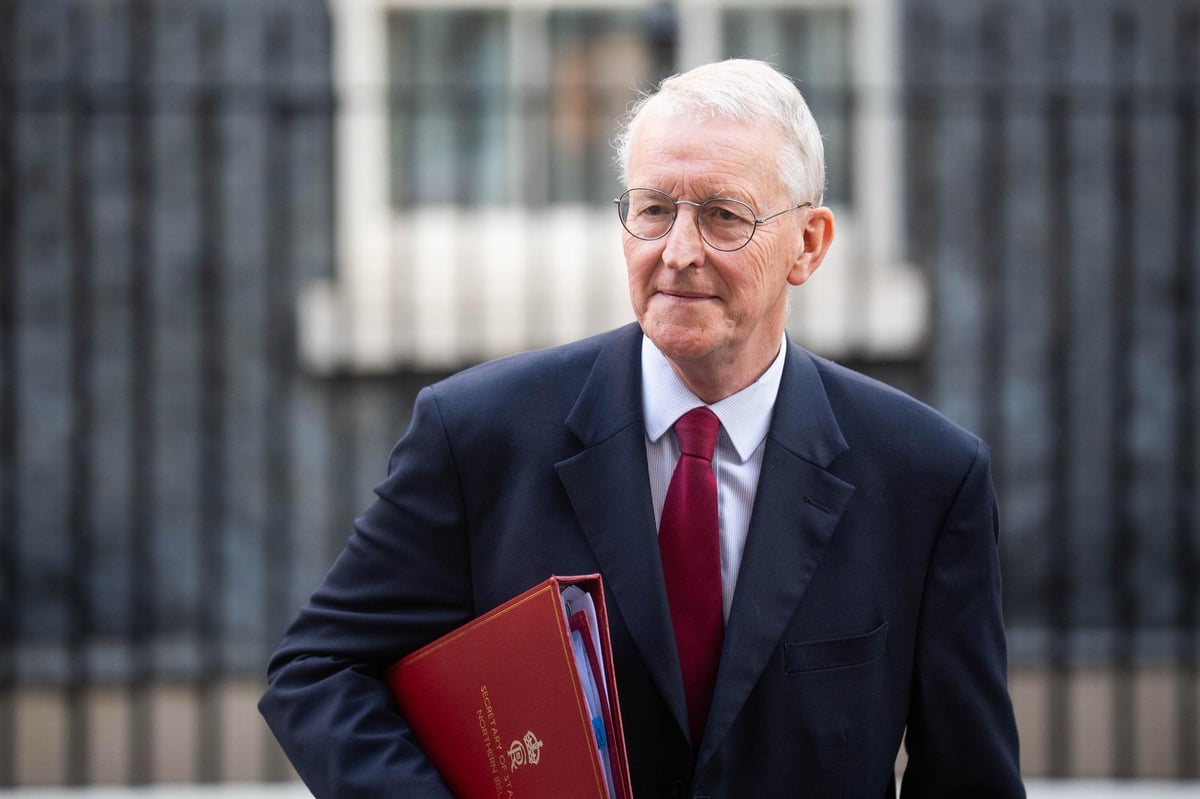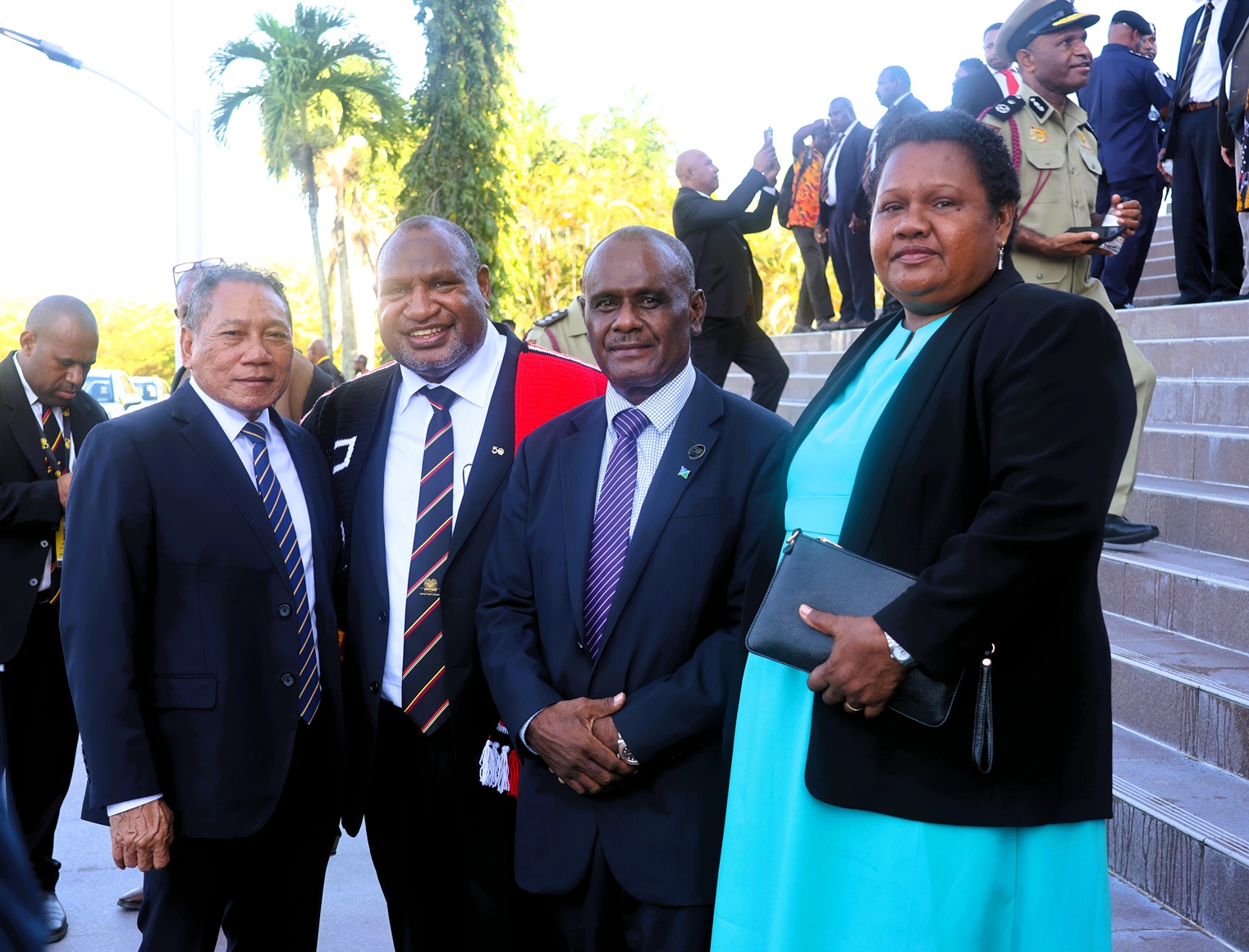Hilary Benn sidesteps queries over his apparent hypocrisy on a legacy amnesty and for not challenging Ireland on its own double standards
By David Thompson
Copyright newsletter

A new document by the Westminster-based think tank Policy Exchange asks the Secretary of State for Northern Ireland why he has been opposing the recent Tory government’s conditional amnesty plan for Troubles killings when he apparently supported a fuller amnesty for the IRA and others under Tony Blair. (Scroll down for more on this story. And click here for our editorial on Policy Exchange focusing on Labour’s weakness on legacy) The report warns that Mr Benn seems to be about to strike a deal with Dublin that will put UK veterans at risk of lop-sided legacy probes, without having challenged the Republic of Ireland over its own hypocrisy on its approach to giving Irish republican terrorists an effective amnesty since the 1990s. The News Letter put these criticisms of Mr Benn to the Northern Ireland Office, and got a general reply on the government’s approach to legacy. The NIO’s answer ignored all of the specific Policy Exchange criticisms of him that we forwarded to them. The Policy Exchange paper, backed by legal and military experts including Admiral Lord West, the Labour peer and ex head of the Royal Navy, who feared “hard-won” legal protections for veterans will be lost. The Policy Exchange report calls for full public and parliamentary scrutiny of the UK government’s coming new agreement with Ireland, as part of the repealing of the Legacy Act 2023 and the conditional amnesty under that legislation. A summary of the document from the think tank also says this “could mark a return to a failed cycle of investigations and prosecutions of British veterans and security forces, who would then face being hauled through the courts for alleged Troubles-related offences from decades ago”. It further says: “The government seems to be failing in its negotiations with the Republic of Ireland, conceding their objectives without apparently securing anything in return and failing to challenge the Irish government’s double standards and hypocrisy.” The News Letter put the entire document, which has been written by distinguished public figures such as the Oxford professor, Richard Ekins KC, to the Northern Ireland Office, offering Mr Benn a right of reply. We highlighted specific criticisms made of Sir Keir Starmer’s Labour government and its approach to the legacy of NI’s past, such as that it seems to be “driven primarily by a desire to placate the Irish government and to bring a close” the legacy legal action that Ireland has taken against the UK to the European Court of Human Rights (ECHR) in Strasbourg. We also asked the NIO about the Policy Exchange document’s query as to whether the UK government’s policy is based on what it genuinely thinks will bring truth to victims and promote reconciliation, or “is driven instead by a dogmatic commitment to the ECHR”. And we put to them the claim that Labour “foolishly abandoned its appeal to the Court of Appeal against the [Belfast] High Court’s decision [on the incompatibility of its Legacy Act] and thus forfeited the ability to a further appeal to the Supreme Court”. We asked about Policy Exchange’s observation that Mr Benn’s recent remarks “to the Northern Ireland Affairs Committee suggest that the UK government has not pressed the Irish government to answer difficult and serious questions about its own approach to handling legacy issues” and that his evidence “certainly gives the impression that agreement with Ireland has been prioritised over the consultation with other interested parties the secretary of state had proposed originally”. We asked the NIO in particular about a specific criticism of Mr Benn, that he was a cabinet minister (for international development) when the Northern Ireland Offences Bill 2005 was prepared and presented to Parliament by Tony Blair. Policy Exchange said: “That bill would have granted immunity in respect of offences committed before 10th April 1998 in connection with terrorism and the affairs of Northern Ireland irrespective of whether they were committed for terrorist purposes or in the course of efforts to combat terrorism. In other words, it would have amounted to a more or less a categorical block on prosecutions of both paramilitaries and security personnel. Prime Minister Tony Blair defended the proposal, stating to a Commons committee that: ‘I’m not pretending this is an easy issue at all. This is an issue that’s uncomfortable to deal with for very obvious reasons…If you don’t deal with this, you can’t move forward, and I think the most important thing is to move it forward.’ The Policy Exchange report section that we put to Mr Benn for comment continued: “In the end, the bill failed to secure sufficient support in Parliament and was withdrawn. It is worth asking current ministers, including those in office at the time, whether they now think that what was proposed then by a Labour government – something much more categorical than anything in the Legacy Act – was in breach of Article 2 and morally and legally outrageous? Have they changed their minds? If so, why? If not, then it is worth asking what made the policy proposed in 2005 a permissible approach to securing reconciliation then, while a more modest and conditional approach to immunity – that requires information recovery – must be regarded as unacceptable now?.” Most of these specific passages from the Policy Exchange report were ignored by the Northern Ireland Office in their reply to us, which was put in the name of a UK government spokesperson. The spokesperson said: “The last government’s scheme would have given terrorists immunity from prosecution, including for the murder of British civilians and soldiers. ”That scheme was widely opposed and rejected by our domestic courts, before this government had even been elected. Any government coming in would have had to put in place new, deliverable legislation. “The Northern Ireland Secretary and Defence Secretary are committed to a fair system that will enable families – including over 200 Armed Forces families – to seek the answers they deserve. “As part of this there will be new and effective protections for veterans. We will ensure no veteran who properly carried out their duty is forced to face an endless cycle of legal uncertainty. Any agreement between the UK and Irish governments would have to include firm commitments from both governments.” The Policy Exchange paper is written by Professor Richard Ekins KC (Hon), Head of Policy Exchange’s Judicial Power Project and Professor of Law and Constitutional Government, University of Oxford, Sir Stephen Laws KCB KC (Hon), Senior Research Fellow, Policy Exchange and former First Parliamentary Counsel and Dr Conor Casey, Senior Fellow, Policy Exchange and Senior Lecturer, University of Surrey School of Law.



